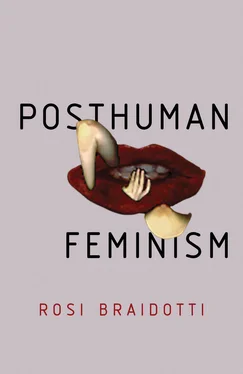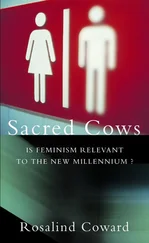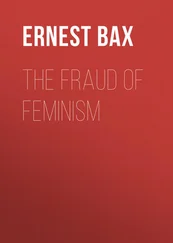The rallying point for feminists is the acknowledgement that the human is changing in ways that put an end to 500 years of European humanism, as Hassan predicted in 1977. The concern shared by cyberfeminists, as by posthuman feminists, is that this mutation may entail a replication of the old patterns of patriarchal, capitalist and colonial exclusions. As we have seen in transhumanism, the danger is indeed that it perpetuates the denial of the embodied and embedded structure of all the subjects, and the more vulnerable forms of embodiment of the oppressed. On the contrary, cyberfeminists embraced the new technologies but with a difference (Braidotti, 1996), which means grounding and embodying the posthuman subject. That is also Francesca Ferrando’s tactic (2013, 2018). She makes a useful distinction between posthumanism and transhumanism by stressing the non-dualistic and intersectional strength of posthumanism. Ferrando radicalizes transhumanism by hacking it, that is to say delinking the project of human enhancement from the humanist ideal of perfection.
This creative interpretation of the posthuman predicament is not new, but in fact a recurrent feature of feminist thinking. Feminism produced the very early posthumanist texts, such as Posthuman Bodies (Halberstam and Livingston, 1995). Feminists also focused on the technologies of sexed and gendered bodies (Bukatman, 1993; Stone, 1995; Turkle, 1995; Balsamo, 1996; Plant, 1997). All these theoretical interventions trust the embodied intelligence of humans as a species that has perfected its own complexity over a long evolutionary history, which cannot be reduced to, or incorporated into, the machinic apparatus. In so doing, they oppose the transhumanist project.
In her important intervention, Hayles (1999) takes on the dominant idea of the transhuman as an extension of the Cartesian illusion of a mind–body dichotomy, where the mind stands for informational patterns that get privileged over material instantiation. This means that all matters related to the body and biology, including affects and emotions, are accidental and not fundamental. They can accordingly be manipulated at will. This illusion is built into an evolutionary programme whereby human consciousness and cognition, the core of the humanist definition of ‘Man’, can be enhanced by integration into machinic systems. The result is a fusion of human and technology, whereby one cannot distinguish bodily existence from computer simulation, cybernetic from biological organisms. Hayles argues that this approach expresses an enduring attachment to the liberal humanist vision of the individual, endowed with more-than-human technological powers.
More recently, working from an Indigenous perspective, Danowski and Viveiros de Castro (2017) also single out the complicity between Eurocentric humanism and advanced technology, as expressed both in the Silicon Valley ideology and the Oxford school of transhumanism. They are critical of the transhumanists’ definition of the posthuman condition as moving analytically beyond the human, but normatively remaining more humanistic than ever. How such a contradictory position can have any credibility is a wonder for critical posthumanists, who see transhumanism as one of the major reasons for the current demise of the human.
Danowski and Viveiros de Castro also remark that transhumanists preach a recodification of old Nature by the rules of the techno-capitalist machine, but present it as a mere matter of managing resources, including human capital and environmental governance. The technological reductivism of the transhumanists is the exact opposite of environmentalism, which – as we shall see in the next chapter – predicates a materially embodied and embedded ontological egalitarianism across the species. By comparison with the digital sophistication of transhumanism, environmentalism often gets dismissed as naïve. Viveiros de Castro (2014) emphasizes that, in so far as it connects to Indigenous and more specifically Amerindian cosmologies, which are diametrically opposite to the western Singularity, an environmentally grounded approach is charged with primitivism. This world view posits a common belonging to a sense of ‘humanity’ that is shared with all living entities. All that lives partakes of the same soul and expresses it through the specific perspective that each entity embodies. Radical perspectivism is the key term, at once relational and site-specific or grounded. This relational ontology pitches anthropomorphism against anthropocentrism, in that it positions humans in their own specificity as species alongside other species, thereby undoing their claim to exceptionalism. This advanced perspectivist philosophy is also known as ‘multinaturalism’ (Viveiros de Castro, 2014). It exposes the transhumanist delusion in all its exclusionary force.
Posthumanism feminism is wary of, but also embedded in, this scenario, ‘interrogating it for its triumphalist rupture from the animal, its complicity with the class politics of big capital and its fantasmatic investment in patriarchy’ (Banerji and Paranjape, 2016: 2). By questioning the global practices and narratives of the transhumanist transformations of the human, posthuman feminism voices the perspectives of the margins and the global peripheries of the contemporary world.
What is problematic for critical posthuman feminists is the transhumanist illusion of grafting the posthuman onto a liberal humanist view of the self and subjecting it to technological enhancement and economic profit. The demarcation line is that critical posthumanists abandon the liberal individual rendition of the human subject, whereas the transhumanists not only preserve it, but want to enhance it technologically into hyper-techno-individualism. Posthuman feminism is instead in favour of heterogeneous assemblages that embed the contemporary subject in an expansive web of vital but also gratuitous relations between humans and non-humans. That is enhancement enough.
Posthuman feminism is an intervention upon the legacy of neoliberal and socialist feminisms as well as on the transhumanist delusion. A posthuman turn is needed as a corrective and alternative to the intersecting critiques of power. I see feminism as repositioning the mixed legacy of humanism in a profoundly different historical context from that which generated it. Feminism today needs to be a transformative, not just an egalitarian movement. I concur with Iris van der Tuin that ‘feminism is the struggle against sexism, homophobia, transphobia and other intersecting forms of structural power imbalances based on naturalizations of inequality’ (van der Tuin, 2015: xiii). As such, not only is it more necessary than ever, but I also think activists should keep some critical distance from the very institutions they have gained the right to enter, occupy and sometimes even run. How can one still cultivate the world-changing passions of feminism, while ensuring the gradual success of its reforms? Where are the radical forces today?
The feminist posthuman answer is multi-layered. In addition to criticizing the social injustices implied in the neoliberal position, and thus striking an alliance with the traditional socialist feminist politics, it also deepens the analysis of advanced capitalism and its concomitant technoscience and bio-genetic technologies. Posthuman feminism revives the radical tradition by offering an updated analysis of cognitive capitalism, based on the study of its advanced technologies, while situating these advances within the ecological crisis and environmental deterioration. As I argue in this book, posthuman feminism has a more adequate analysis of contemporary transversal relations of power, having relinquished the liberal notion of the autonomous individual as well as the socialist ideal of one privileged revolutionary historical subject.
Читать дальше












